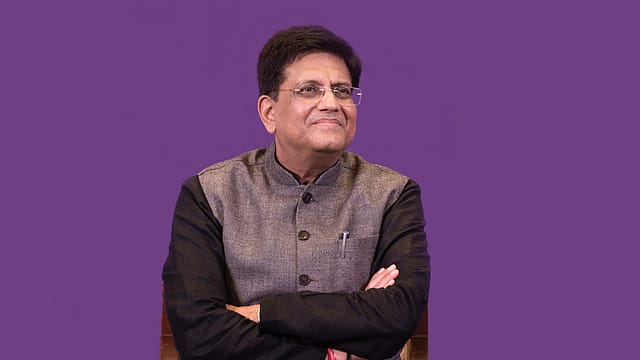India, 13 other IPEF members sign deal to cut dependence on China
ADVERTISEMENT

India along with the United States and 12 other members of the Indo-Pacific Economic Framework for Prosperity (IPEF) have signed a supply chain resilience agreement to reduce their dependence on China.
The agreement is expected to make IPEF supply chains more resilient, robust, and well-integrated, and contribute towards economic development and progress of the region as a whole, the commerce ministry says.
IPEF members include India, Australia, the U.S., Japan, Fiji, Brunei, Korea, New Zealand, Singapore, Indonesia, Malaysia, Vietnam, Philippines and Thailand. These countries represent 40% of global gross domestic product and 28% of global goods and services trade.
In May 2022, the United States launched the IPEF with a dozen initial partners across the Indo-Pacific. IPEF is part of the Biden Administration's commitment to strengthening ties with allies and partners and tackling 21st-century economic challenges in the Indo-Pacific region.
The IPEF framework seeks to advance resilience, sustainability, inclusiveness, economic growth, fairness, and competitiveness for the 14 IPEF economies. The framework aims to provide tangible benefits that fuel economic activity and investment, promote sustainable and inclusive economic growth, and benefit workers and consumers across the region.
"India joins U.S. & 12 other Indo-Pacific Economic Framework For Prosperity (IPEF) partners to ink the #IPEF Supply Chain Resilience Agreement, a first-of-its-kind international agreement that will: fortify & strengthen global supply chains; foster adaptability, stability & sustainability," commerce minister Piyush Goyal wrote on X.
January 2026
Netflix, which has been in India for a decade, has successfully struck a balance between high-class premium content and pricing that attracts a range of customers. Find out how the U.S. streaming giant evolved in India, plus an exclusive interview with CEO Ted Sarandos. Also read about the Best Investments for 2026, and how rising growth and easing inflation will come in handy for finance minister Nirmala Sitharaman as she prepares Budget 2026.
Goyal participated in the third in-person ministerial meeting of the Indo-Pacific Economic Framework for Prosperity (IPEF) in San Francisco.
Speaking at the event, Goyal emphasised enhanced collaboration to realise collective aims of the IPEF, particularly on the need for mobilising affordable financing for clean economy transition and for enhancing technology cooperation. He also urged early implementation of the envisaged cooperative work under IPEF, including on bio-fuels alliance suggested by India.
On the sidelines of the IPEF ministerial, Goyal held bilateral meetings with Gina Raimondo, United States Secretary of Commerce, Tengku Zafrul Aziz, Minister of International Trade & Industry, Ministry of International Trade & Industry, Malaysia, and Airlangga Hartarto, Coordinating Minister for Economic Affairs Republic of Indonesia.
Trade with the Indo-Pacific supports more than three million American jobs and is the source of nearly $900 billion in foreign direct investment in the United States. With 60 percent of the world’s population, the Indo‑Pacific is projected to be the largest contributor to global growth over the next 30 years.
The framework seeks supply chain commitments that better anticipate and prevent disruptions in supply chains to create a more resilient economy and guard against price spikes that increase costs for American families. It intends to do this by establishing an early warning system, mapping critical mineral supply chains, improving traceability in key sectors, and coordinating on diversification efforts.
The first IPEF ministerial in-person meeting was held in Los Angeles, California on September 8-9, 2022, where ministers announced the negotiating objectives for IPEF Pillars I-IV.
